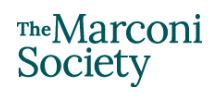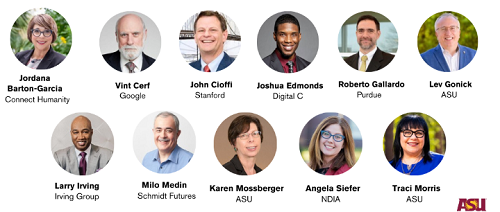
Fast, affordable Internet access for all.

With an historic effort underway to expand high-speed Internet availability to every corner of the country, one vital aspect of the nationwide initiative is to ensure that communities that have been left behind get access to the knowledge and digital skills necessary to fully participate in a modern Inter(net) connected world.
It necessitates the creation of an army of digital navigators to work on the front-lines with the right tools as their disposal. To that end, Arizona State University (ASU) and the Marconi Society announced the creation of a first-of-its-kind Digital Inclusion Leadership Certificate program that aims to provide “a foundational understanding of the technology, policy and digital inclusion essentials needed to create true digital equity.”

University and Marconi Society officials say the Digital Inclusion Leadership Certificate is the nation’s first professional certificate in the field as the program is geared to educate individuals and teams at all levels of government, as well as nonprofits and anchor institutions such as libraries, housing authorities, and healthcare organizations who work with historically marginalized populations that either lack access to broadband or are unsure of how to take advantage of the opportunities high-speed Internet connectivity delivers.
“This certificate is for anyone who wants more background on broadband technologies and digital inclusion, including those who will be drafting plans and managing programs under new federal funding,” ASU’s website further elaborates.
The certificate program combines newly created curriculum, videos, and cohort conversations that will create peer groups to work together over the long term to exchange best practices and new ideas. It contains five courses, or modules, and will serve as an introduction to digital inclusion basics, network technologies, planning and coalition-building, policy foundations, and broadband applications and impacts.
“As billions of dollars in federal and state funding become available, the US faces a critical shortage of people who understand the interdisciplinary issues associated with broadband access, affordability and adoption,” Karen Mossberger, Director of ASU’s Center on Technology, Data, and Society said in a press statement when the program was unveiled.
“Our research shows that broadband and its inclusive adoption and use have substantial benefits for communities as well as individuals. No community can afford to be left behind, and this program prepares leaders with the tools they need to ensure full participation.”
Prominent Instructors

Program instructors include some of the most prominent names in the field, chief among them Vint Cerf, one of the founding fathers of the Internet and now Chief Internet Evangelist with Google; as well as our own Christopher Mitchell, Institute for Local Self-Reliance (ILSR) Community Broadband Networks Initiative Director; and Angela Siefer, Executive Director of the National Digital Inclusion Alliance (NDIA).
The fall cohort of the 12 week program begins on September 18 and is now open for enrollment.
Other instructors include:
NDIA Executive Director Angela Siefer succinctly captured the vision of digital inclusion the program looks to foster and cultivate.
“As unprecedented digital equity funding is flowing now, we are also looking to the future. How can we create robust digital inclusion ecosystems? How will we sustain this movement?” she said. “Programs like the Digital Inclusion Leadership Certificate will help build the digital inclusion field and the expertise we need to continue moving forward.”
To enroll or get more details about the Digital Inclusion Leadership Certificate click here.
